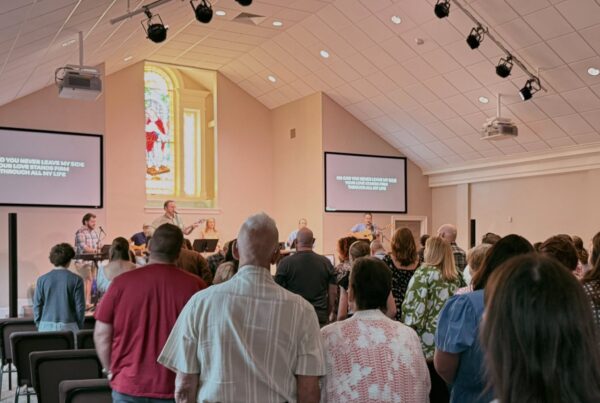I was a mess when I planted my church. I was 24 and fresh off a stint on an overseas mission field that was only fruitful in the sense that I knew that wasn’t where God wanted my wife and me. My team and I were all relatively young with a deep desire to reach people with the gospel. We didn’t know much more than that. We struggled relationally to stay healthy. My early church-planting years were marked by God’s faithfulness and sustaining power amid relational dysfunction.
We’re often under the impression that if we’re planting a church, we’re healthy. Maybe we’ve been approved by older, wiser counsel. Perhaps we have a great family who loves us. We herald God’s Word and cling to his promises of faithfulness, believing we cannot fail. Our disciple-making ministries rightly teach that God doesn’t call the qualified but qualifies the called. But what are we to make of the harmful, if not sinful, relational patterns we exhibit? We may not be as spiritually healthy as we think, and this can have a disastrous impact on our churches.
As we strive to help others to be spiritually formed by the gospel, we must not neglect the pursuit of our own growth in Christlikeness. God places us in church-planting ministries to reach more people for him, but he also desires to grow us in his grace.
It’s not just churches that need to be deeply, spiritually formed; it’s church planters, too.
A church’s spiritual health begins with leadership and spreads throughout the whole body. Therefore, pastors must prioritize their own growth in godliness while pursuing a robust gospel culture in their churches.
Prioritizing Spiritual Formation
We need to make spiritual formation a benchmark of faithfulness and fruitfulness for ourselves. I know for me, these attributes can easily fall prey to achievement and success. I’m often consumed with budgets and attendance. I fixate on making things better—constantly improving and fine-tuning. Faithfulness and fruitfulness often succumb to pragmatism.
We may not be as spiritually healthy as we think, and this can have a disastrous impact on our churches.
When we prioritize formational practices in our ministry, not just so we can do more, but so we can be more satisfied in God, we’re practicing faithfulness and fruitfulness. This can look like going for a prayer walk or listening to God’s Word. It can be saying “no” to certain meetings. It may mean investing in some coaching or assessments to gain a better perspective on our relational proclivities.
We should especially encourage leaders to remain curious about their formational practices. In any staff meeting, it should be normal to ask questions like: Are you taking enough time off? Where are you looking to grow? Where do you sense God is leading you? By asking these questions, you’re not only caring for your staff but also teaching them what questions they should be asking others to spur on their spiritual growth. When we become more healthy spiritually, we’ll be better equipped and more motivated to establish a transformational gospel culture throughout our churches.
Pursuing Gospel Culture
While we would all claim to have gospel cultures in our churches, they can easily be undermined by rival cultures. Church plants often adopt cultures of performance and pretending, of comparison and criticism. Without countermeasures, the inevitable success-or-death ideology of every startup enterprise becomes the culture of the church. This creates churches that are high on pressure and intensity but low on relational maturity. To escape these ministry pitfalls, we must pursue a gospel culture of spiritual formation.
So, what does this look like in a church? It’s championing before your people the value of Christian practices like Bible reading, worship, and prayer. It means regularly prioritizing deep abiding in God, not merely aiming to achieve and accomplish. This does not take the heat out of our message and vision; it simply grounds it in the gospel.
Let’s create a contagious culture of grace where people are confronted with the horror of sin and the radiance of Christ’s salvation for sinners.
We can easily cast an intense vision of planting churches that mimics a live wire with lots of jolts and danger. But without a grounding in the gospel developed by championing spiritual formation, we will invariably create a dangerous culture with our energetic, yet often, unpredictable vision casting. Even in our public prioritization of spiritual health, we must guard against spiritual performance as if these practices are just one more thing to accomplish. Spiritual health and formation are only as spiritual as they are grounded in the finished work of Christ.
We must be spiritually healthy before we’re able to help others live out the gospel. We need healthy pastors to plant healthy churches that will reach their communities with the good news of Jesus Christ. Let’s create a contagious culture of grace where people are confronted with the horror of sin and the radiance of Christ’s salvation for sinners. Let the bold witness of the church be, “Oh, taste and see that the LORD is good! Blessed is the man who takes refuge in him!” (Ps. 34:8).











